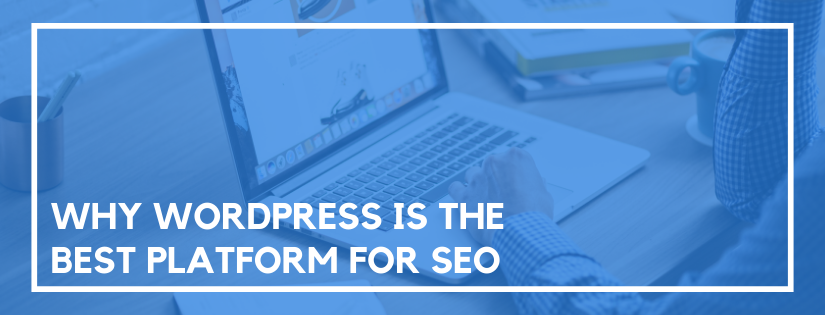There are several different platforms to choose from when you’re building your website. A few of the options include WordPress, Squarespace, Wix, and Weebly. But which one is the best platform for SEO? Spoiler, WordPress is the best option. Instead of comparing feature to feature, we’ll explain why WordPress is our platform of choice to create a site optimized for SEO.
Non-WordPress Options
Let’s start by discussing some of the platforms you may consider other than WordPress.
Squarespace
Squarespace makes it simple to build websites. But with the simplicity comes constraints. To optimize your Squarespace site for SEO you don’t need to install any plugins. It’s all built into the system which is nice. It takes the responsibility off of you which can be good and bad. If you want to improve your page speed further than the default settings, you can’t. Squarespace also doesn’t include any prompts to assist in optimizing your onpage elements. They have a resource guide you can follow, but the page doesn’t keep track when you’ve successfully optimized each onpage element. And one last con to Squarespace, it isn’t free.
Weebly
Weebly includes the majority of basic SEO elements. They don’t by default allow you to add an H1 tag though. They do allow you to make HTML edits so there is a way around it but that is such a simple and important SEO aspect it’s silly it isn’t included by default.
Wix
Wix also includes SEO basics, but that’s where it stops. This is the bare minimum of SEO you’d want to do. You have very little control over truly optimizing for SEO. You can customize your URL, but then they append tags to the end so that isn’t ideal for SEO.
How WordPress Can Help with SEO
First, let’s clarify what we mean by WordPress. Throughout the article, any mention of WordPress is specifically the WordPress.org self-hosted option. The WordPress.com hosted option is not a good choice for a business website because it doesn’t give you enough control or ownership over your website.
WordPress Gives You Flexibility
In my opinion, WordPress is the only way to go. It gives you flexibility, and that seems to be the most important aspect. SEO is always changing. You don’t want to switch your web platform to accommodate new SEO changes. You also don’t want to be held hostage waiting for your platform to release an update to accommodate a new SEO change. You need a flexible platform that puts you in control.
The key to SEO isn’t as simple as adding a title tag. It encompasses much more than that including the entire user experience. Go with a platform where you won’t have constraints and you can build the perfect system for your community.
Grow Into Your Platform — Not Out Of It
Even if it doesn’t happen all in one day, WordPress gives you the option to build out your website to meet your needs. You want to be able to grow into your website platform, not out of it. This is not the type of thing you want to change as your business grows, so choose a platform that can grow with you.
Optimize with Yoast SEO
The Yoast SEO plugin will activate SEO tools that you can use to optimize your site yourself. On each post and page you’ll have a Yoast SEO interface that identifies what you need to do to improve your WordPress site for SEO. It not only lists the items but identifies when they’ve been completed. It also allows you to edit the title tag and a meta description.
In Summary
The best platform for SEO will be the one that allows you to create the optimal user experience. That’s why I lean on WordPress. It does have a bit of a learning curve at first, but it isn’t steep and the internet is filled with free WordPress resources. If you need help getting started, I’ve created a guide you can follow to build your WordPress website.
The bottom line is WordPress provides the flexibility you need to not only check off the SEO basics but also continue to grow and optimize your site throughout the years.
Do you want to listen to this article? Here’s the podcast episode:
